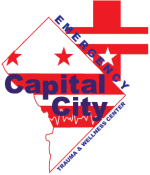Empowering Yourself and Your Community of Color
JCheang
Wed, 07/28/2021 – 13:25
By Melanie Zhou
Growing up, I’d often view my mental health as a burden to others. I felt shame when reaching out for help and when I did reach out for help, I was often dismissed by family and community members for being “weak” or “sensitive.” As a child of immigrants, how could I focus on my mental health when my family was struggling to survive in hostile environments where minority experiences are invalidated and the world expects us to fail?
To say the least, it feels overwhelming to make well-being a priority when coming from a community of color entrenched in deep stigma. The intergenerational traumas experienced by people of color have shaped rigid perceptions about mental health as a “personal responsibility” and about how it should be resolved. For example, Asian Americans deeply link personal success with familial success and underreport mental health conditions as compared to their white counterparts to “save face.” One study showed that 63% of Black people believe that a mental health condition is a sign of personal weakness. As a person of color, sometimes both the source of mental troubles and the barrier to getting help come from within a person’s own home.
Although it may take a long time to recondition one’s cultural perspective of mental health, any person of color should be reminded that prioritizing their mental health is worthwhile. It is not shameful, it is not weak— it is courageous to take the first steps in preventing cycles of intergenerational trauma that further isolate you and members of your community.
Here are some suggestions for how to keep upright in environments that make mental wellness a challenge:
Get involved in activism
Oftentimes, mental health issues in a community of color are related to institutional discrimination, stereotypes, and racial stigma. Promoting social equity promotes health more broadly. Getting involved in activism can often provide people of color a sense of agency. There is a sense of healing that comes from positively impacting yourself and your community. If your community is less occupied with feelings of inequity, you can begin addressing the mental health stigmas within your community and open the dialogue about mental health.
Reach out to other POC outside your immediate community that you trust to share your story
Sometimes, the people closest to you are not the people who are the most supportive of your story. Connecting with other POC outside your immediate communities may help validate many of the emotions and experiences you were taught to suppress. Other POC will often understand certain themes of your story and provide enough separation from the stigma in your community to offer support. For example, when I started university at a predominantly white institution, I found mental health support with other immigrant children who often did not come from the same culture as me. In general, it is important to find those who will give you space to exist without judgment. Having someone listen to your story without being dismissive can do wonders for your mental health.
Develop a sense of pride in your heritage and use that to approach conversations about mental health in your community
Older generations of color have most likely experienced instances of severe discriminatory treatment that have affected their health and their view of mental health. Asking older generations how they dealt with those feelings and how they envision people of color moving forward demonstrates respect for their lived experience. By initiating conversations about mental health from this common ground of respect, you can instill a sense of hope for tomorrow that will make members of your community more willing to change their perspective of mental health. Lack of mental health education often underpins the opinions of older persons of color. Engaging in a dialogue that acknowledges their past experiences and coping mechanisms while advocating for yours will create a safer space to move your community forward.
When seeking professional help, make sure you ask the right questions so that your provider is culturally competent and supportive of your experiences
Reaching out for help is extremely difficult. When you encounter a therapist that does not understand your struggles, generalizes them, or offers advice that defies cultural traditions that seem strange to them but are normal to you, mental health can feel like a meaningless journey. Communicating your needs as a person of color seeking help is extremely important when finding the right mental health professional. Here are a few questions that should help in connecting with a meaningful provider that can empathize with your racial and ethnic background:
How many patients have you treated from my background?
Do you have any specialized training in treating individuals of my racial and ethnic identity?
How do you think aspects of cultural identity may affect treatment and communication options with patients?
Your health matters. It is important. You are not alone on your journey. If you are struggling, there are organizations and online wellness spaces created by other people of color who will be there to support you.
Melanie Zhou is a rising sophomore at Stanford University. Seeing a counselor 10 years after a traumatic childhood experience helped her recognize the need to destigmatize the mental health conversation. In the next few years, she hopes to see her nonprofit, Oasis, expand to schools across Colorado while partnering with mental health programs that are proven to help students. She serves as the Youth Commissioner on the Governor’s Commission on Community Service of Colorado.







